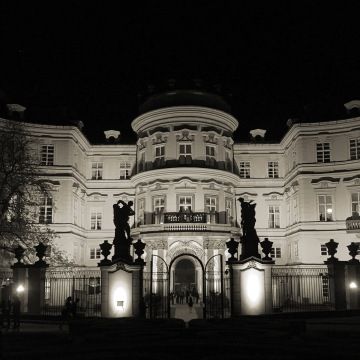
25. 1. 2021
An Old New Institute in the Inheritance Law for Spouses and Unmarried Couples
If you are from Germany and would like to make a Berliner Testament in the Czech Republic, you will find yourself disappointed. Unfortunately, the Czech legal system does not know such instrument. However, there is one possibility how to achieve the aim of transferring the inheritance in whole first to your spouse and after his/her death to a third person, e.g. your children. It rests in the old new institute of Czech inheritance law, the fideicommissary substitution. This institute is also favorable for unmarried couples.
Fideicommissary substitution has been reintroduced in the Czech inheritance law again after more than fifty years together with the new Civil Code, effective from 2014. By the fideicommissary substitution the testator orders that at the death of his first heir or upon an event or condition stipulated in the will, the first heir (the fiduciary heir) shall be substituted by a second heir (the fideicommissary heir). For example, the testator may stipulate that the fideicommissary heir or heirs will not acquire the inheritance before the age of 18 or before the death of a fiduciary (first) heir.
The institute is suitable not only to preserve certain property in the family between spouses or unmarried couples and their children. It also regulates the financial circumstances of minors or persons, who don’t have the full legal capacity to decide about their property, e.g. because of a mental health disorder.
It should be noted that even though the fiduciary heir is the owner of the inheritance, his proprietary rights are limited to the right of using and enjoying the fruits or profits arising from the inheritance. Therefore, he is not entitled to alienate or encumber the property, unless he is given a consent by the fideicommissary heir in the form of a public instrument. On the other hand, the testator may order such right of free disposal of the inheritance in favor of the fiduciary heir.
Given that fideicommissary substitution is a relatively new institute, case law has not developed yet. And there are at least two questions to be determined by the judiciary. Firstly, children are according to the Civil Code forced heirs. They are entitled to inherit at least three-quarters of their statutory inheritance share as minors and at least one quarter as adults. The question is, when? If children are according to the will to inherit as fideicommissary heirs, they might wait for the inheritance for a long time. Therefore, it is not entirely clear whether they are entitled to the statutory share already at the time of transfer of the inheritance to the fiduciary heir or only after the conditions of the substitution are fulfilled.
Secondly, the right of free disposal of the fiduciary heir might cause damage to forced heirs as they, theoretically, might be left with nothing from the inheritance. And if the fiduciary heir inherits in parallel with the substitution by which he gains the right of free disposal, there is a legitimate concern a court would contest the fact that his inheritance claim is fully satisfied and in addition to that he controls a large amount of the inheritance without restrictions or limitations. Therefore, his right of free disposal of the inheritance together with the fideicommissary substitution could be challenged.
At his moment, we have to await the answers to these questions by the higher courts. However, should court decisions lead to a change in the already adopted inheritance concept, the testator has the right to revoke the testament and make a new one at any time.
By Mgr. Jana Kostěncová
Download
Author
Neuigkeiten & Publikationen
Webinar: Verschärfte Vorschriften im Bereich Geldwäsche
Martin Holler wird am 20.11.2024 über die Umsetzung der europäischen Geldwäscherichtlinie in Tschechien und die Folgen bei Nichtbeachtung referieren.
Energy Efficiency Conference 2024 in Prague
„Legal reform to advance the decarbonisation of the building and heating sectors” will be the main topic of the AEEC (Association of European Energy and Climate Lawyers) Autumn Conference 2024 which is going to take place on November 14, 2024 in Prague, Czech Republic.
Much more than just a Few Words - 35 Years of Genscher Balcony
On 30 September 1989, the German Foreign Minister at the time, Hans-Dietrich Genscher, stepped onto the balcony of the German embassy. He addressed around four thousand East German refugees who had been waiting in the embassy garden for weeks in the hope of freedom.



